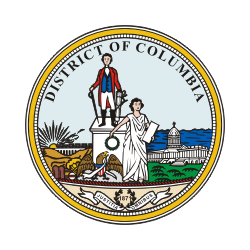
Washington DC is home to a number of accredited nursing schools dedicated to helping students launch careers in the healthcare field. As a nurse, you have a wide field of career options available, each one requiring a different level of education. Each of these nursing paths also requires successfully passing a licensure or certification examination at the conclusion of your studies.
Nursing assistants are the first line of care for most patients, performing essential personal tasks. To become a certified nursing assistant, you need a basic amount of education, often as little as eight weeks. In the Washington DC area, almost 4,000 individuals are employed as nursing assistants, earning an average of $14.29 per hour.
Licensed practical nurses are one level more senior than nursing assistants. They provide basic patient care, and they also administer medications and treatments to patients. Generally, you need 12-18 months of training to become an LPN, culminating in a diploma or certificate at the conclusion of your studies. In Washington DC, about 1,200 individuals are employed as LPNs, and they earn an average of $23.36 per hour.
Registered nurses supervise practical nurses and nursing assistants. They provide both personal and medical care to patients. They also create overall plans of care for patients. To become a registered nurse, you must earn an associate or bachelor’s degree from an accredited institution. Roughly 11,000 individuals are employed as registered nurses in the DC metropolitan area, earning an average wage of $37.28 per hour.
2024 NURSING SCHOOL RANKINGS
For our 2024 rankings, the research team at Nursing Schools Almanac collected data on nearly 3,000 nursing schools and campuses throughout the United States. We evaluated each school on three dimensions:
- The institution’s academic prestige and perceived value
- The breadth and depth of nursing programs offered
- Student success, particularly on the NCLEX licensure examination
We then combined these assessments into an overall score and ranked the schools accordingly. For a detailed description of our assessment methodology and dimension weights, please see here.
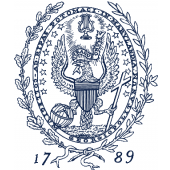
#1: Georgetown University
Georgetown University has educated more than 8,000 healthcare professionals since its nursing program was founded in 1903. The School of Nursing & Health Studies conducts a breadth of program offerings at the baccalaureate, master’s, and doctoral levels. Students in the school’s traditional four-year BSN program have a remarkable 97% NCLEX pass rate over the past decade. Graduates from the MSN-CNL track have performed even better, with a 99% NCLEX pass rate since the program’s inception. Georgetown also offers four MSN specialty tracks and two practice doctorates: doctor of nursing practice (DNP) and doctor of nurse anesthesia practice (DNAP). Students benefit from state-of-the-art facilities like the O’Neill Family Foundation Clinical Simulation Center and the Discovery Center.
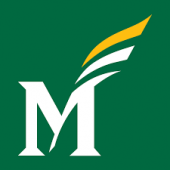
#2: George Mason University
George Mason’s College of Health and Human Services houses the forty-year-old School of Nursing. The school has produced so many successful graduates that one in three nurses practicing in the DC metropolitan area is a GMU alumnus. Baccalaureate pathways include traditional BSN, accelerated second degree BSN, RN-to-BSN, and two co-enrollment programs. Over the past decade, prelicensure BSN students have averaged an 86% first-time pass rate on the NCLEX licensure examination. GMU also offers MSN concentrations for aspiring nurse educators, nurse practitioners, and nursing administrators; an RN-to-MSN bridge program; post-master’s certificates for aspiring nurse educators and family psychiatric-mental health nurse practitioners; and both types of doctoral nursing degrees (DNP and PhD).

#3: Marymount University
The Malek School of Health Professions houses the Marymount University Department of Nursing. Each year, approximately 50 students graduate from the school’s traditional BSN program, while another 80-100 students complete the accelerated BSN program. Across these two pathways, graduates have passed the NCLEX-RN licensure exam at a strong 91% rate over the past decade. Marymount University also offers a hybrid online RN-to-BSN program, an MSN degree with a family nurse practitioner focus, and an online DNP program that requires just one on-campus component per semester. Clinical experiences and internships take place at some of Virginia’s leading healthcare organizations.
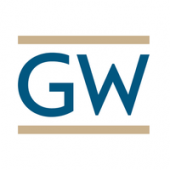
#4: George Washington University
Founded in 2010, George Washington University’s School of Nursing is already educating a diverse student body of more than 1,000 individuals. In 2018, the school was named an NLN Center of Excellence for enhancing student learning and professional development. Dual campus locations in Foggy Bottom and Ashburn are home to three premier skills and simulation laboratories. GW Nursing provides baccalaureate, master’s, and doctoral programs. The school has earned particular recognition for its online offerings, including its 100% online MSN program, from national publications like U.S. News & World Report.
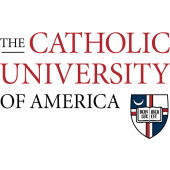
#5: The Catholic University of America
Established in 1935, The Catholic University of America’s Conway School of Nursing offers degree programs at both the undergraduate and graduate levels. The school has BSN tracks for traditional and second-degree students, four nurse practitioner MSN specialties, and both DNP and PhD pathways. Students in Catholic University’s nursing programs can gain clinical experience in over 100 local healthcare facilities, often with alumni preceptors. The school’s research-intensive doctoral program is located near preeminent research and health facilities, including the National Institutes of Health and the Institute of Medicine. Prelicensure BSN students have averaged a 91% first-time pass rate on the NCLEX examination since 2013, including a stellar pass rate of 98% or higher for the past three graduating classes.
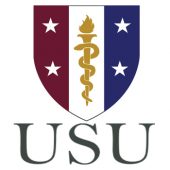
#6: Uniformed Services University of the Health Sciences
The Daniel K. Inouye Graduate School of Nursing at the Uniformed Services University of the Health Sciences was established by Congressional action in 1993. Over the intervening thirty years, the institution has graduated more than 1,000 military and federal nursing leaders. The university’s DNP program prepares APRNs to provide high-quality patient care in a range of settings (both traditional and austere), to support combat and humanitarian operations, and to lead healthcare policy in the unique military and federal environments. The nursing PhD program prepares nurse scientists to conduct original research aligned with the priorities of the military and federal health systems. USU students pay no tuition; in fact, they receive a salary during their enrollment. Nursing graduates have enjoyed exceptional outcomes, including a 99.9% overall certification pass rate since the GSN’s inception.
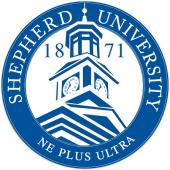
#7: Shepherd University
The School of Nursing at Shepherd University offers a traditional four-year BSN, an RN-to-BSN pathway, and a DNP program that accommodates both BSN and MSN entry points. The prelicensure BSN is a patient-centered program designed to provide students with the knowledge, skills, and understanding necessary to pass the NCLEX-RN licensure examination. The RN-to-BSN track is moving from a hybrid-seated model to a fully online format beginning in the fall semester of 2022. Students may complete the nursing courses full-time in as little as two semesters, or they can opt for a part-time schedule. The DNP curriculum is designed to produce family nurse practitioners and psychiatric-mental health nurse practitioners who embrace healthcare reform and are advocates for vulnerable populations. A post-graduate certificate is also available in both the FNP and PMHNP specializations.
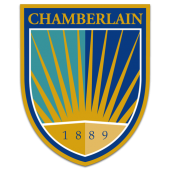
#8: Chamberlain University
Chamberlain University’s Tysons Corner campus offers a prelicensure BSN program with no prerequisites that may be completed in just three years of fulltime study. The university also offers a unique military-to-BSN pathway for students who wish to transition from a military healthcare role to a civilian registered nursing role. Students receive hands-on experience in the Chamberlain SIMCARE Center as well as clinical settings, allowing them to refine their nursing skills while working alongside faculty, mentors, experienced nurses, and peers. More than 100 students graduate from the Tysons Corner prelicensure BSN program each year. These students have averaged an 84% first-time pass rate on the NCLEX licensure examination since the program launched approximately a decade ago.
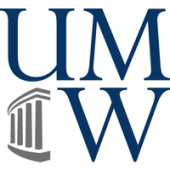
#9: University of Mary Washington
The University of Mary Washington was founded in 1908 as Fredericksburg’s State Normal and Industrial School for Women. Today the school serves a coed population of 4,400 students across more than sixty majors and programs of study. The nursing program is part of the College of Arts and Sciences. The university offers two nursing pathways: an RN-to-BSN completion program conducted both online and on-campus, and a unique 1+2+1 dual degree plan. Dual degree students attend both the University of Mary Washington and Germanna Community College for the first three years; during senior year, students attend only UMW. This competitive program accepts just 15-18 students each fall.
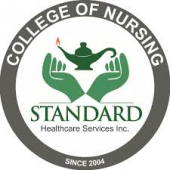
#10: Standard Healthcare Services College of Nursing
Standard Healthcare Services College of Nursing has educated aspiring healthcare professionals for over a decade. In 2007, the school launched its first prelicensure program, a practical nursing diploma. Several years later, Standard College debuted an associate of applied science (AAS) degree in professional nursing, structured as an LPN-to-RN transition program. The LPN diploma currently offers several scheduling options including a 14-month daytime program, a 14-month evening program, and an 18-month weekend program. The AAS degree also follows a 14-month curriculum with two enrollments annually, one in January/February and one in July/August. Standard College’s nursing graduates have consistently performed well on the National Council Licensure Examination. The school boasts an 85% first-time NCLEX-PN pass rate over the past decade and an 86% first-time NCLEX-RN pass rate since the inception of the AAS program.
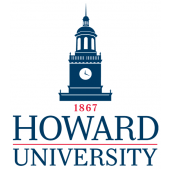
#11: Howard University
Howard University is a private, historically Black research institution that serves 11,000 students with more than 130 areas of study across 13 schools and colleges. The Division of Nursing, a cornerstone of the College of Nursing & Allied Health Sciences, offers three baccalaureate pathways (traditional, LPN-to-BSN bridge, RN-to-BSN completion) and two MSN specializations (family nurse practitioner, nurse educator). The MSN tracks are also available as post-master’s certificate programs. Undergraduate prelicensure students are prepared to sit for the NCLEX-RN exam, while their graduate counterparts are prepared to sit for the American Academy of Nurse Practitioners’ FNP certification exam or the National League for Nursing’s Certification for Nurse Educators exam. Howard University’s baccalaureate, master’s, and post-graduate APRN certificate nursing programs are fully accredited by the Commission on Collegiate Nursing Education.
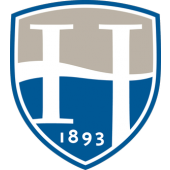
#12: Hood College
Hood College is a coed, independent, liberal arts college with a 125-year educational history. The college offers more than fifty academic programs to a tight-knit student body of approximately 1,100 undergraduates and 960 graduate students. The Department of Nursing recently launched a four-year prelicensure bachelor of science in nursing degree program. The BSN curriculum builds on the college’s liberal arts foundation with coursework focused on nursing leadership, evidence-based practice, nursing research, critical thinking, nursing theory, and communication. This coursework is complemented by extensive clinical experiences as well as hands-on practice in the college’s simulation and skills laboratories. Since the nursing program’s inception, Hood College students have achieved an 81% first-time pass rate on the NCLEX-RN national licensure examination.
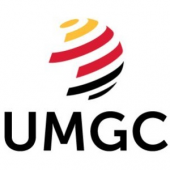
#13: University of Maryland Global Campus
University of Maryland Global Campus is the largest online public university in the nation, serving more than 80,000 students across more than 20 countries. Over 90 programs and specializations are available, ranging from education to teaching to nursing. While many UMGC programs may be completed entirely online, the nursing program includes a required in-person practice experience. Accredited by the Commission on Collegiate Nursing Education, this RN-to-BSN degree completion program is designed for ADN-prepared registered nurses with an active, unencumbered license. The curriculum builds on the student’s ADN degree and previous clinical and practical experiences. Online coursework covers a breadth of essential topics like global health, nursing leadership, management, nursing informatics, and technology. UMGC graduates are prepared for career advancement or graduate study in nursing.
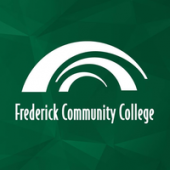
#14: Frederick Community College
Over the course of its sixty-year history, Frederick Community College has served more than 200,000 students across nearly one hundred degree and certificate programs. Nursing education at Frederick Community College consists of both traditional and transition programs. The college offers a practical nursing certificate and several associate degree pathways, including a daytime cohort, an evening/weekend cohort, and a transition-to-RN bridge program. The final option grants advanced standing to LPNs, paramedics, air force technicians, army medics, and navy corpsmen. Frederick Community College also partners with Frostburg State University, Towson University, and the University of Maryland to offer a dual-admission RN-to-BSN pathway. Graduates of all programs have enjoyed success on their licensure examinations. Over the past decade, LPN graduates achieved an exceptional 93% NCLEX-PN pass rate, while ADN graduates averaged an 89% NCLEX-RN pass rate over the same time period.
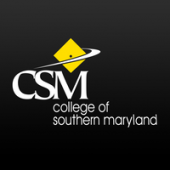
#15: College of Southern Maryland
The College of Southern Maryland has offered its LPN program for 41 years and its ADN program for 37 years. ADN students can pursue one of several options: a traditional pathway, an LPN-to-ADN transition pathway, or a medic/corpsman-to-ADN bridge pathway. First-year ADN students can take classes at any of the college’s campuses in La Plata, Leonardtown, or Prince Frederick. Second-year students complete their nursing courses at the La Plata campus. LPN students must also complete their program of study in La Plata. Graduates from both programs have an excellent track record of success. The LPN program typically graduates a small cohort of 6-10 students annually, with an impressive 98% NCLEX-PN pass rate over the past decade. The ADN program graduates a much larger class of 80-100 students annually, with a solid 88% NCLEX-RN pass rate over the past decade.
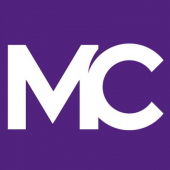
#16: Montgomery College
Montgomery College offers an associate degree in nursing at its Takoma Park / Silver Spring campus. While admission to the college is open to all students, nursing is a selective application-based program with a limited enrollment of 132 students per semester. The nursing curriculum offers several pathways. Students who are new to healthcare can follow a generic two-year course of study. Existing LPNs, military corpsmen, and paramedics can bypass the first year with an intensive ten-week summer transition course. Over the past decade, nursing graduates have averaged an 86% first-time pass rate on the NCLEX licensure examination. Successful nursing graduates can take advantage of Montgomery College’s transfer agreements with numerous institutions including Drexel University, George Washington University, and Towson University. The college also offers a unique dual-admission program in partnership with the University of Maryland School of Nursing.
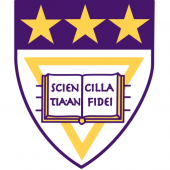
#17: Trinity Washington University
Trinity Washington University opened in 1900 as the nation’s first Catholic liberal arts college for women. Today, the institution serves more than 1,800 students from all backgrounds. The School of Nursing & Health Professions offers a baccalaureate nursing program that allows students to complete clinicals, fieldwork, and internship experiences at major partner facilities like Children’s National Health System, St. Elizabeth’s Hospital, and Washington Hospital Center. Trinity nursing students also benefit from small class sizes, summer externships, and professional memberships. Degree pathways include a traditional BSN, an accelerated second degree BSN, and an online RN-to-BSN completion pathway. Traditional and second degree BSN graduates are prepared to sit for the NCLEX-RN licensure exam. Trinity’s most recent graduating classes have achieved an exceptional 100% first-time NCLEX pass rate.
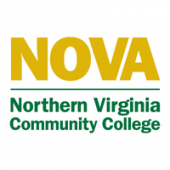
#18: Northern Virginia Community College
Northern Virginia Community College is one of 23 colleges within the Virginia Community College System. NOVA offers a fulltime five-semester associate degree in nursing. First-semester students take prerequisite coursework, followed by four semesters of nursing coursework. The curriculum covers a breadth of critical nursing concepts including developmental psychology, human anatomy, health promotion, microbiology, and intercultural communication. Students enjoy access to a dedicated nursing lab and a state-of-the-art simulation lab at NOVA’s Medical Education Campus in Springfield. The ADN program graduates 100-150 students annually. These students hold an impressive 88% first-time pass rate on the NCLEX-RN licensure examination over the past decade.
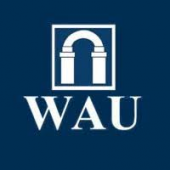
#19: Washington Adventist University
Washington Adventist University has served students since 1904 under a variety of monikers including Washington Foreign Mission Seminary and Columbia Union College. Today the university enrolls approximately 1,500 students across more than 100 academic programs. At the undergraduate level, aspiring nurses can pursue a traditional four-year bachelor of science in nursing through the Edyth T. James Department of Nursing. BSN students enjoy access to the university’s numerous clinical partners including Washington Adventist Hospital, Shady Grove Adventist Hospital, Holy Cross Hospital, and National Naval Medical Center. Graduate nursing students have several options through the School of Graduate and Professional Studies. The school offers MSN concentrations in both nursing education and nursing / business leadership. ADN-prepared nurses can take advantage of an RN-to-MSN bridge process that smooths the transition to graduate nursing study.
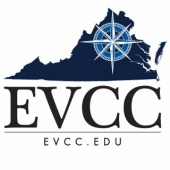
#20: Eastern Virginia Career College
Eastern Virginia Career College is the region’s first career college dedicated to adult career education. The school launched a traditional ADN program in 2008, and it has since added an LPN certificate and an LPN-to-ADN bridge pathway. The LPN program requires 45 weeks of fulltime study, while the ADN program requires 46 weeks of study after general education prerequisites are completed. The timing of LPN-to-ADN completion depends on the number of accepted transfer credits. Graduates of the EVCC nursing programs are prepared to sit for their respective NCLEX licensure examinations. Over the past decade, LPN graduates have achieved an impressive 92% first-time NCLEX-PN pass rate, while their ADN counterparts have averaged an 84% first-time NCLEX-RN pass rate.
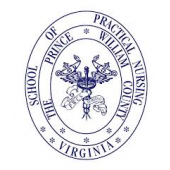
#21: Prince William County School of Practical Nursing
Prince William County School of Practical Nursing caters to both high school seniors and adults with a high school diploma or GED. The 18-month LPN program includes 400 hours of direct patient care at clinical sites like Sentara Northern Virginia Medical Center, Birmingham Green, Westminster at Lakeridge, and Fort Belvoir Community Hospital. Clinical experiences can range from 6-10 hours per day. The LPN curriculum consists of 12 courses including anatomy and physiology, fundamentals of nursing, and leadership / preceptorship. Prince William County School of Practical Nursing graduates approximately 25 students each year. Over the past decade, they have averaged a solid 89% first-time NCLEX pass rate. Graduates may seek practical nursing employment at hospitals, nursing homes, clinics, and physician’s offices.
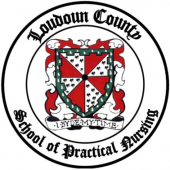
#22: Loudoun County School of Practical Nursing
Loudoun County School of Practical Nursing offers a two-year certificate program that is held at the Adult Education Learning Center in Leesburg. The LPN curriculum covers nursing skills and fundamentals, geriatric nursing, medical-surgical nursing, mental health nursing, and nursing leadership. On campus, practical nursing students engage in immersive simulation lab experiences. Off campus, they conduct hands-on clinical experiences. In year one, students complete 40 hours of clinical rotations at long-term care facilities; in year two, they complete 400 clinical hours at hospitals, community clinics, physician’s offices, and schools. Loudoun County School of Practical Nursing graduates a select group of 5-10 students annually. Over the past decade, these graduates have averaged an 84% first-time pass rate on the NCLEX-PN licensure exam.
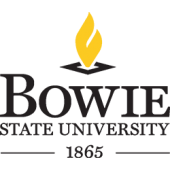
#23: Bowie State University
Established in 1865, Bowie State University was Maryland’s first historically black public university. The Department of Nursing offers several baccalaureate pathways and two graduate areas of specialization. Undergraduates can pursue a traditional four-year prelicensure BSN, an accelerated track, or an RN-to-BSN completion option. The accelerated track is designed for students who already have some college credit or even hold a non-nursing bachelor’s degree. The RN-to-BSN program conducts both face-to-face and online coursework. Graduate nursing students can pursue a career as a family nurse practitioner or a nurse educator through either an MSN degree or a post-master’s certificate. The MSN curriculum incorporates more than 600 hours of clinical practice. Bowie State students gain hands-on experience in the university’s state-of-the-art nursing simulation lab as well as through internships in award-winning facilities.
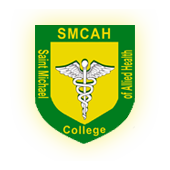
#24: Saint Michael College of Allied Health
Saint Michael College of Allied Health conducts LPN and ADN programs that are open to applicants 18 years and older who have graduated from an accredited high school or have obtained their GED. The LPN program covers nursing foundations, informatics, nursing technology, and chronic care management for vulnerable and underserved populations. Graduates are prepared to sit for the NCLEX-PN licensure exam. The ADN program prepares students for positions in acute, chronic, ambulatory, and home healthcare settings. Graduates are prepared to sit for the NCLEX-RN licensure exam. The ADN program graduates between five and 15 students annually, and it boasts impressive outcomes. For example, ADN students hold a 90% employment rate within 6-12 months of graduation. They have also achieved an 87% first-time NCLEX pass rate over the past decade.

#25: Fairfax County School of Practical Nursing
Fairfax County School of Practical Nursing is approved by the Virginia Board of Nursing. The LPN certificate program allows high school students to begin coursework one week after the end of their junior year. Students complete twelve core courses over four quarters, including in-school laboratory sessions with manikins. Simulations and clinical experiences begin during the third quarter. Clinical sites include local hospitals, doctor’s offices, clinics, and nursing homes. After completing all coursework and 400 hours of clinical experience, students are eligible to sit for the NCLEX-PN licensure exam. Fairfax County School of Practical Nursing graduates a close-knit cohort of 6-12 students annually. These graduates have averaged an 81% first-time NCLEX pass rate over the past decade. After passing the licensure exam, LPNs are prepared for immediate employment in the field or advanced placement in a registered nursing program.
